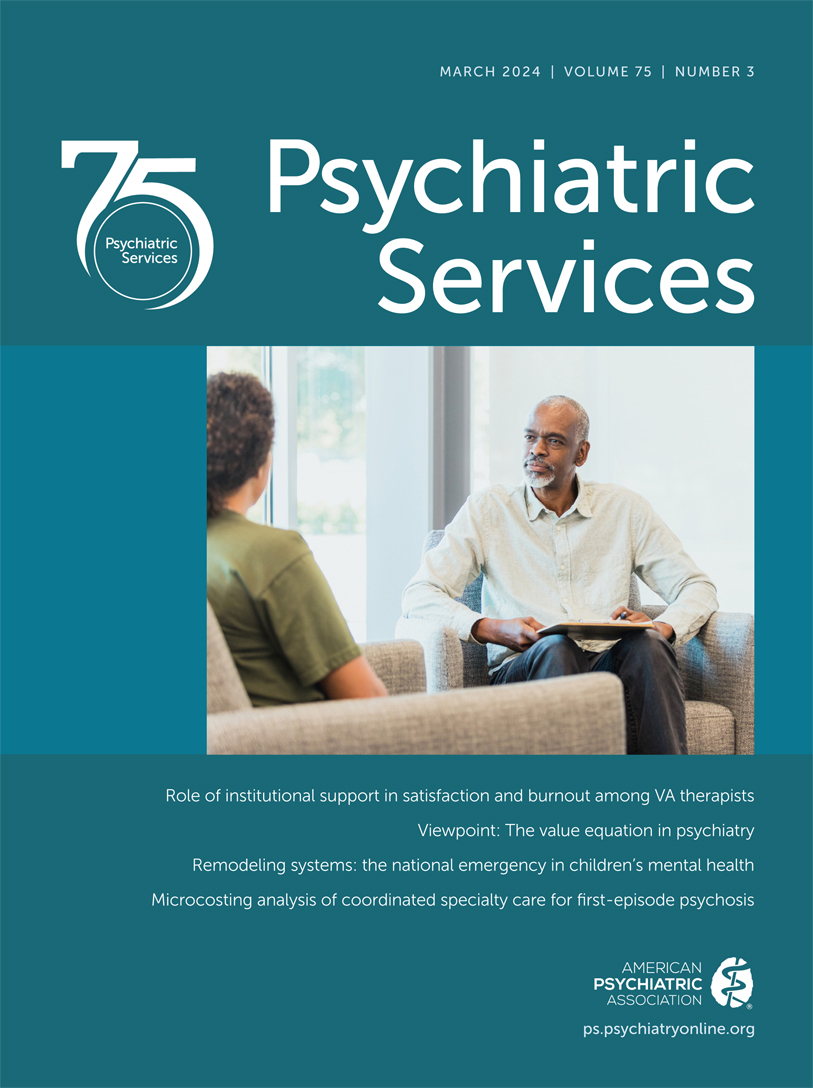Patients’ Perspectives on Medication-Related Suicide Prevention Interventions Delivered in Emergency Settings
Abstract
Objective:
Encouraging patients at risk for suicide to reduce access to potentially lethal medications and drugs is a key component of evidence-based suicide prevention. However, little research has been done to inform interventions for reducing intentional self-harm.
Methods:
Semistructured interviews were conducted with 28 U.S. veterans who sought emergency care from the Veterans Health Administration between 2021 and 2023 to explore veterans’ perspectives on medication-related interventions, including opinions on intervention components (e.g., medication return envelopes). Matrix analysis was used to aggregate data into categories, which were predefined by using constructs from the health belief model (e.g., perceived benefits).
Results:
The participating veterans generally endorsed interventions as acceptable and were particularly supportive of distributing medication return envelopes. However, they often conceptualized these efforts as steps to prevent unintentional overdose or theft—not necessarily to prevent suicide—and rarely indicated that such interventions were appropriate for themselves. Across the interviews, participants identified important facilitators to care, such as ensuring that interventions were convenient and accounted for the perceived cost of disposing medications. Perspectives on engaging family or friends in interventions were mixed. The importance of the interventions was more readily acknowledged among participants with previous opioid use exposure—perspectives that appeared to stem from lived experiences.
Conclusions:
This study contributes important foundational knowledge that can be used to inform research and clinical initiatives aimed at preventing medication- and drug-related suicides.
Access content
To read the fulltext, please use one of the options below to sign in or purchase access.- Personal login
- Institutional Login
- Sign in via OpenAthens
- Register for access
-
Please login/register if you wish to pair your device and check access availability.
Not a subscriber?
PsychiatryOnline subscription options offer access to the DSM-5 library, books, journals, CME, and patient resources. This all-in-one virtual library provides psychiatrists and mental health professionals with key resources for diagnosis, treatment, research, and professional development.
Need more help? PsychiatryOnline Customer Service may be reached by emailing [email protected] or by calling 800-368-5777 (in the U.S.) or 703-907-7322 (outside the U.S.).



